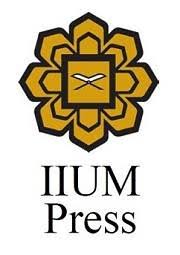THE PROPHETIC APPROACH TO DIVERSITY AND INCLUSION: A MODEL FOR MUSLIM MINORITIES
DOI:
https://doi.org/10.31436/alburhn.v9i1.365Abstract
Prophet Muhammad (PBUH) serves as a model of multiculturalism and multi-ethnicity, as demonstrated throughout various phases of his biography, including the Makkah period, the migration to Abyssinia (Habasha), the migration to Medinah, the establishment of the Medinah Charter, and the Treaty of Hudaybiyah. These historical moments provide profound insights into managing diversity, tolerance, and social harmony. In today’s world, where multicultural and multi-religious dynamics are increasingly prominent, there is a pressing need for exemplary guidance to foster social cohesion. This study examines the lessons from the Prophet’s (PBUH) life that are particularly pertinent to Muslim minorities, highlighting the significance of embracing cultural and religious diversity. This research uses content analysis to draw on primary sources such as the Quran, Hadith, and Sirah books, and secondary sources such as journal articles, and online publications. The findings indicate that, whether Muslims reside as a majority or minority, they are duty-bound to respect pluralistic social orders, accommodate individuals from diverse backgrounds, and recognize differences as an essential component of social harmony while firmly upholding Islamic theological foundations, ensuring both peaceful coexistence and unwavering commitment to faith.
Keywords: Inclusivity, Diversity, Embracing Differences, Prophetic Sirah
Downloads
References
References
‘Abdul Rehman, Saifullah & Nighat. Islamic Paradigms for Interfaith Dialogue: A Quranic and Sunnah Perspective. Journal of The Scholar, Vol.8, No. 2, 2022. pp. 66-82. DOI: https://doi.org/10.29370/siarj/issue15ar4
‘Imārah, Muhammad. (n.d) al-Islam wa al-Ta’ddudiyyah. al-Qāhirah: Maktabat al-Shurūq al-Duwaliyyah.
Ahmad, Barakat. (1979) Muhammad, and Jews: A Re-Examination. New Delhi: Vikas Publishing House.
al-Bukhāri, (1997) Al-Adab al-Mufrad. No: 388, Beirut: Al-Saadawi Publications.
al-Bukhari. (1997) Sahih al-Bukhari, trans. Muhammad Muhsin Khan. Riyadh: Darussalam.
al-Nadwī, Abū al-Ḥasan. (1981) Madhā khasira al-ʻālam bi-inhitāt al-Muslimīn. al-Mansura: Maktabat al-Iman.
al-Shaybāni. (1997) Sharah al-Siyar al-Kabir. Beirut: Dār al-Kutub al-‘Ilmiyyah.Vol. 01.
al-ʻUmarī, ʻAbd al-ʻAzīz ibn Ibrāhīm. (2015) Bināʼ al-Mujtamaʻ al-Madanī wa Tanmiyatuh fi al-Sīrah al-Nabawīyah. Riyād: Dār al-Kunūz al-Ishbīliyah.
al-ʻUmarī, Akram Ḍiyāʼ. (1992) al-Sīrah al-Nabawīyah al-Saḥīḥah: Muḥāwalah li-Taṭbīq Qawāʼid al-Muḥaddithīn fī Naqd Riwāyat al-Sīrah al-Nabawīyah. al-Madīnah: Maktabat al-ʻUlūm wa-al-Ḥikam. Vol.01, P. 182.
Amstrong, Karen. (2007) Muhammad: Prophet for Our Time, London: Harper Perennial.
Bulac, Ali. (1998) The Medina Document, Liberal Islam: A Source Book, Edited by Charles Kurzuman, New York: OUP. DOI: https://doi.org/10.1093/oso/9780195116212.003.0020
Engineer, Asghar Ali. (nd) The Prophet of Non-Violence: Spirit of Peace, Compassion & Universality in Islam. New Delhi: Vitasta Publishing.
Ersahin, Seyfettin. Prophet Muhammad’s Relations with Christians (an Islamic Perspective). The Journal of Sirah Studies, Special Issue. 11, p.108.
Faridi, Fazlur Rahman. (1998) Living as a Muslim in a plural society, Chennai: Islamic Foundation Trust.
Furnivall, J.S. (1948) Colonial Policy and Practice. Cambridge: Cambridge University Press.
Halilovic, Safvet (2014) Sirah- A Biography of Muhammad the Last Messenger of Allah. Sarajevo: Publishing House.
Ḥamīdulláh, Muḥammad. (1985) Majmūʻat al-wathāʼiq al-siyāsīya li al-ʻahd al-nabawīyah wa al-Khilafah al-Rāshidah. Beirut: Dar al-Nafayis.
Hamidullah, Muhammad. (2004) The Life and Work of the Prophet of Islam, New Delhi: Adam Publishers and Distributors.
Hassan, Farooq. Acceptance of Pluralism in Islam (A Myth or Truth). European Journal of Scientific Research, Vol. 69, No. 3, 2012.
Husayni, Seyyid Sa’adatullah. (2019) Responsibilities of Muslims Living in the Pluralistic Society. Chennai: Islamic Foundation Trust.
Hussain, Amir. (2008) Islam, Pluralism and Interfaith Dialogue, Progressive Muslims: on Justice, gender and Pluralism. England: One World Publications.
Ibnu Hisham, (2000) Sīrāt Ibnu Hisham Biography of The Prophet, Abridged by: Abdus-Salam M. Harun. Egypt: Al-Falah Foundation for Translation and Distribution.
Ibnu Ishaq. (1967) The life of Muhammed, Tr. A Guillaume, Pakistan: Oxford University Press.
Jumʻah, ʻAlī. (2013) al-Namādhij al-arbaʻah min hady al-Nabī ṣallá Allāh ʻalayhi wa-sallam fī al-taʻāyush maʻa al-ākhar: al-usus wa-al-maqāṣid. al-Jīzah : Dār al-Fārūq lil-Istithmārāt al-Thaqāfīyah.
Khidr, Seyyid ‘Ali. (2012) al-Ḥiwār fī al-Sīrah al-Nabwiyyah. Makkah: The Muslim World League.
Qaradawi, Yousuf. (1992) Priorities of the Islamic Movement in the Coming Phase. Cairo: Dar al-Nasr for Egyptian Universities.
Ramadan, Tariq. (2007) In The Footsteps of The Prophet: Lessons From The Life of The Prophet. New York: Oxford University Press.
Siddiqi, Muhammad Yasin Mazhar. (2006) The Prophet Muhammad: A Role Model for Muslim Minorities. Markfield: The Islamic Foundation.
Smith, M.G.M. (1965) Institutional and Political Conditions of Pluralism in Africa, ed. by L. Kuper and M.G. Smith. Berkeley: University of California Press.
Watt, William Montgomery. (1953) Muhammad At Mecca. Great Britain: OUP.
Downloads
Published
How to Cite
Issue
Section
License
In general, reusing or reproducing substantial portions of al-Burhān content requires permission. This includes the use of text, figures, tables, multimedia content, and any other material published in any issues of al-Burhān Journal of Qur'an and Sunnah Studies. For some instances, al-Burhān may make its content freely viewable; however, such material may require permission for reuse. To seek permission, please contact the editorial.









